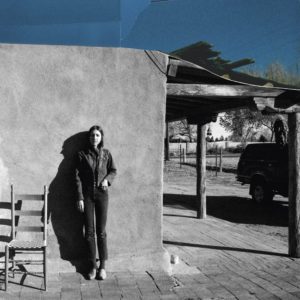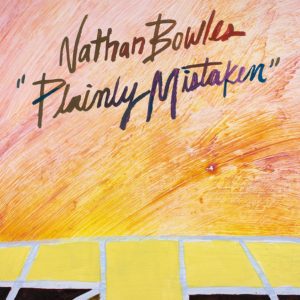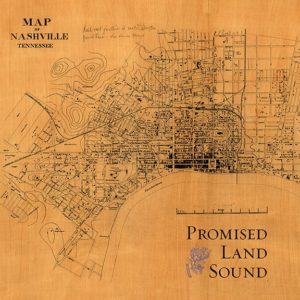Album Narrative
-

-
Photo by Tom Rankin.
-

-
Photo by Tom Rankin.
-

-
Photo by Tom Rankin.
-

-
Photo by Tom Rankin.
-

-
Photo by Tom Rankin.
-

-
Photo by Tom Rankin.
-

-
Photo by Tom Rankin.
-

-
Photo by Tom Rankin.
If I had a breast of glass
Wherein you might behold
Your name in secret I would write
In letters of bright gold
In bright gold
One of the most striking and strangely moving moments on Jake Xerxes Fussell’s gorgeous Good and Green Again—an album, his fourth and most recent, replete with such dazzling moments—arrives at its very end, with the brief words to the final song “Washington.” “General Washington/Noblest of men/His house, his horse, his cherry tree, and him,” Fussell sings, after a hushed introductory passage in which his trademark percussively fingerpicked Telecaster converses lacily with James Elkington’s parlor piano. That’s the entire lyrical content of the song, which proceeds to float away on orchestral clouds of French horn, trumpet, and strings, until it simply stops, suddenly evaporating, vanishing with no fade or trace, no resolution to its sorrowful minor-key chord progression, just silence and stillness and stark presidential absence. It feels like the end of a film, or the cold departure of a ghost, and is unlike anything else Jake has recorded.
The song provides an apt metaphor for the record as a whole and for Fussell’s artistic process itself. He appropriated the text from an early 20th century hooked rug by an anonymous Virginian artist depicting exactly what its red-stitched all-caps headline text and caption declares: Mount Vernon, a horse, a cherry tree, and the big man himself, cartoonishly grimacing (or is it wryly grinning? there’s not much mouth, just a red-thread wrinkle). George sits cross-legged in foppish leggings and slippers on a blue bestarred chair, with a perfect arch of snow-white wig haloed around his noble head. The rendering of this folk-art artifact ignores perspective and punctuation: every object in the lineup is the same size, and the list of the General’s stuff includes no commas or line breaks, a kind of accidental concrete poem that democratizes the supposedly great democratizer, reducing him to the same prosaic level as his diminutive crib, his prancing pony, and his tart cherries (maybe he is grimacing after all). The image may have been intended as a tribute, maybe even a reverent one—if we forget the fact that it’s a rug, and that we’re meant to walk all over it—but it hits as satire in its contemporary context, like a textile version of one of those all-caps cat caption memes. (I CAN HAZ CHERRIES?) The “noblest of men” looks a bit pathetic here, a little childish with his big-boy toys, a little goofy and alone—a little like how the rest of us often feel.
(Now, Jake is certainly no apologist for George Washington, nor for the myriad atrocities of American history, but he recognizes the deep wells of American song are filled from headwaters both fresh and vile. Within its ambiguities, “Washington” is, for Fussell, a placid protest song that elevates an artist and her rug above a general in his splendor. It’s a fragment of the broken ways we speak about history and power, a satirical shard sent to pierce and deflate our pernicious, endlessly regurgitated national mythologies. As such, it’s a deeply sad song. It’s not the only one here.)

Fussell carefully considers such contradictions in his studious choice of songs. He’s distinguished himself as one of his generation’s preeminent interpreters of traditional (and not so traditional) “folk” songs, a practice which he approaches with a refreshingly unfussy lack of nostalgia and preciousness, utterly devoid of folkie cosplay. By recontextualizing ancient vernacular songs and sources of the American South, he allows them to breathe and speak for themselves and for himself; he alternately inhabits them and allows them to inhabit him. His mesmerizing performances reveal the beauty of calling things by their true names, of coaxing old texts and recordings gently through the telescope of time, thereby transmuting them, through his own ineffable alchemy, into something approachably intimate and immediately relevant, something both his and ours.
In all his work Jake humanizes his material with his own profound curatorial and interpretive gifts, unmooring stories and melodies from their specific eras and origins and setting them adrift in our own waterways. The robust burr of his voice, which periodically melts and catches at a particularly tender turn of phrase, and the swung rhythmic undertow of exquisite, seemingly effortless guitar-playing—here he plays more acoustic than ever before—pull new valences of meaning from ostensibly antique songs and subjects. What’s different about “Washington” is that it’s one of four original compositions on the album—the others are the three instrumentals—a career first for Fussell, who has heretofore been content to remain a vitreous vessel for existing, often anonymous, songs.
On Good and Green Again, Jake not only ventures beyond his established mastery of songcatching and songmaking into songwriting, but likewise navigates fresh sonic and compositional landscapes, going green with lusher, more atmospheric and ambitious arrangements. The result is the most conceptually focused, breathtakingly rendered, and enigmatically poignant record of his wondrous catalog. It’s also his most deliberately premeditated album, representing his fruitful return to a producer partnership after two self-produced projects, What in the Natural World (2017) and Out of Sight (2019) (William Tyler produced his friend’s self-titled 2015 debut.) This time James Elkington produced and played a panoply of instruments, bringing to Jake’s arcane song choices his own peerless sense of harmony and orchestration, balance and dramatic tension, honed from collaborations with artists such as Michael Chapman, Steve Gunn, Joan Shelley, Richard Thompson, and Jeff Tweedy. Jake knew after a 2018 Midwestern tour together that he wanted to work with Jim, appreciating his open ears, unorthodox influences, and flexibility in following instincts.
The pair enlisted a group of formidable players hailing from Durham, North Carolina (where Fussell lives) and elsewhere, including regular bandmembers Casey Toll (Mt. Moriah, Nathan Bowles) on upright bass, Libby Rodenbough (Mipso) on strings, and Nathan Golub on pedal steel. They were joined by welcome newcomers Joe Westerlund (Megafaun, Califone) on drums, Joseph Decosimo on fiddle, Anna Jacobson on brass, and veteran collaborator and avowed Fussell fan Bonnie “Prince” Billy, who contributes additional vocals.
Together this crew is uncannily able to pinpoint that magical place on Jake’s musical map where melancholy, quietude, and head-nodding, foot-stomping joy commingle and transcend—places like, on previous albums, “Raggy Levy,” “Jump for Joy,” and “The River St. Johns.” Album opener “Love Farewell” (featuring some beautiful singing by Bonnie “Prince” Billy) rings that bell with an elliptical tale of the folly of war, set to the world’s most heartbreaking goodbye march for a lover left behind. “Carriebelle” and “Breast of Glass” each similarly concerns, in its own way, romantic love and leavings. All three songs highlight Jacobson’s diaphanous, understated brass parts, tying them together in a true lover’s knot. “Rolling Mills Are Burning Down,” with its distant keening strings and capacious sense of space, observes and mourns the loss of work and community in the wake of elemental disaster. Nine-minute tour de force “The Golden Willow Tree,” the sole explicitly narrative song herein, is a hypnotic, minimalist rendering of a tragic maritime ballad about scuttling an enemy ship in exchange for wealth and glory—and a captain’s inevitable betrayal. It’s a rejoinder to “Love Farewell”’s naïve cheer in the face of imminent violence.
If overall Good and Green Again sounds a little sadder and slower than Fussell’s past records, well, maybe we’re all a little sadder and slower these days. A smoldering mood of regret and loss pervades, a distinct vibe of vanitas. But three airy instrumentals, all Fussell originals—“Frolic,” “What Did the Hen Duck Say to the Drake?,” and “In Florida”—punctuate the program, offering respite and light in the form of crisp, shuffling play-party tunes, each in turn somewhat more hopeful and exuberant than the last. Their resemblance to lullabies is, perhaps, not coincidental. Fussell and his partner welcomed their first child into the world during the making of Good and Green Again. These lovely songs bear that promise in letters of bright gold.
Cannons roar, drums a-beating
Oh my love, there’s no retreating
Acknowledgments
9/10, Album of the Month. Good and Green Again is his most thoughtful, his most eloquent, and his most poignant explication of the idea … [that] for him a song is no older than the last time it was sung.
– Uncut
The leading interpreter of American folk music right now … a really richly arranged, fantastic record.
– NPR Music’s All Songs Considered
On his fourth album, Good and Green Again, Fussell and the producer James Elkington avoid a period pose, casting songs in lush arrangements that belong to the modern indie landscape… The most dramatic shift is emotional… A creature of his own time, Fussell sounds unfailingly downcast.
– The New Yorker
4 stars; lead Filter review. Fussell’s the sort of folk singer who makes an art of picking the richest songs, honoring their cultural and historical contexts, and making something new and idiosyncratic out of them. He has the charm of the best bar raconteur, a storyteller who can sell fantastical yarns in a companionable way.
– MOJO
It’s his most bittersweet album, with a melancholy lingering in each song, no matter its subject matter. Even “Frolic,” with its crisp Telecaster notes, thick brushstrokes of pedal steel, and choo-choo “vocables,” sounds forlorn, or at least caught up in some daydream; it’s less about running and skipping and more about our memories of childlike abandon, when we had no burdens upon our shoulders. Fussell thrives in this setting, not just because his voice carries such sadness gracefully but because he sounds like he’s responding to the present moment.
– Pitchfork
His most poignant album.
– The Guardian
For his fourth and latest album, Good and Green Again, Fussell worked with James Elkington to bring rich, subtle shadings to these reconstructed songs, achieving a melancholy clarity and modern-day resonance in music first conceived centuries ago.
– Aquarium Drunkard
[‘Love Farewell’ is] a heartbreaking song of love during war time that Fussell reinterprets and refreshes masterfully, his tender vocals and acoustic guitar turning the minimal source material into something rich and beautiful.
— NPR Music
4 stars. A cohesive, brilliant collection… [of] breathtaking, empathic power.
– Record Collector Magazine
Roundly among Fussell’s most inquiring albums to date. With songs soaked in hurt and hubris, there’s a melancholy that matches the age we occupy. Here, as always, Fussell uses his curatorial skills to reflect the uncertainty, the anguish, and the unease of our times through antique notions and contemporary cloths alike.
– Raven Sings the Blues
A work of lush folk, gorgeous orchestration and rich lyrical imagery,
– Brooklyn Vegan
Another spell-binding album from the inimitable Jake Xerxes Fussell.
– Folk Radio UK
Equal parts earthy and ethereal, melancholic and hopeful, its nine songs also deliver several career superlatives for the Durham-based folk song interpreter, guitarist, and singer.
– INDY Week
4.5 stars. There’s something special about Fussell’s music that is both transporting and deeply relaxing. Listening to Good and Green Again is like visiting a warm little den where the songs of yesteryear spend an easy hour catching up on the news of the present. His is a peculiar gift, but one he’s learned how to use to great effect.
– AllMusic
Fussell is creating his own legacy within the long lineage of traditional folk musicians and storytellers that have come before him.
– The New York Times
So elegant … It’s relaxing in the way that pondering a Zen koan is relaxing, and sweet in the way that the wounded, honey-voiced blues of Mississippi John Hurt are sweet.
– Pitchfork
Music that resides at the seams of Appalachia and the cosmos.
– NPR
[Fussell] approaches his source material with an intuitive ease
– The New Yorker
[Fussell’s] approach remains refreshingly devoid of the authenticist pageantry and manufactured grit that all too often plagues Americana’s deep divers. In fact, he’s proven himself to be quite adventurous, working with inspired collaborators who occupy a similar liminal mindset of historical inspiration and contemporary experimentation.
– All Music
Until now, Fussell’s albums have consisted solely of adapted traditional material, but with this set, he offers up the first original songs of his career. Of those four tracks, three are instrumentals and are among the album’s best, particularly ‘In Florida’ and the sweetly grooving ‘Frolic.’
– All Music
[Fussell’s] fourth and latest album, ‘Good and Green Again,’ his first with producer James Elkington, features more daring instrumentation, newly-composed instrumentals, and many striking touches from musical collaborators.
– WUNC
Fussell’s greatest strength remains his ability to model any song into the sonic equivalent of a trusted old friend, regardless of original authorship.
– Bandcamp
Fussell’s latest, ‘Good and Green Again,’ doesn’t signal a major shift in the singer-guitarist’s approach, but it might be his best effort yet.
– Aquarium Drunkard
Fussell doesn’t treat his sources like holy writ or museum pieces; in his expert hands, they feel full of life, conversational, and fully absorbing.
– Aquarium Drunkard
Fussell’s guitar and voice are front and center throughout ‘Good and Green Again,’ but the beautiful arrangements and James Elkington’s production deserve mention, as well. With murmuring horns, mournful violin, and drifting pedal steel, it’s a rich, expansive sound. But it never overwhelms what’s important — the songs themselves.
– Aquarium Drunkard
The song-maker known for transporting us back to a simpler, sepia-toned time is in the midst of a cosmic shift forward on his latest, Good and Green Again. The melodies and arrangements feel contemporary and fresh, keeping his well-worn tales — usually meticulously pieced together from archives and ancient texts — very much in the present.
– No Depression
He’s quite a boring dude, Jake Xerxes Fussell. He only makes top albums. Fussell delivered a good record. Again.
– OOR
Fussell has gold in their hands with Good and Green Again, highly recommended!
– Music That Needs Attention
Long story short: Jake Xerxes Fussell’s new album Good And Green Again is a beautifully moody album with worn folk songs in which it once again becomes clear that history does not have to be old and dusty, but if you pay attention to it it is still relevant today.
– Muziscene
A wonderfully relaxing album!
– Subjectivism
Good And Green Again is a beautiful album. The traditional craft is combined with an arrangement that sometimes feels dreamy, but never loses contact with everyday life. A record that you can play when you feel good, but also a record that can offer comfort in more difficult periods. It’s only January, but Jake Xerxes Fussell is already taking a shot at the 2022 title record.
– Da Music
Three years ago, the Amercian folksinger Jake Xerxes Fussell knew for sure that he didn’t have to write songs himself; there was enough material. That had sometimes been hidden for centuries, or just deserved to be revived. Nevertheless, four new compositions of his hand can be found on his fine fourth album Good and Green Again. New are also the subtle wind instruments and other tasteful instruments that make this his richest record.
– De Volksrant
Since his self-titled debut, Fussell has been bringing traditional material into sway with the present moment, updating it with his hearty electric fingerpicking, deep West Georgia drawl and additional augmentations to fill out the sound. These range from the steel guitar and fiddle found on his debut, to the french horn, piano, or dobro on his latest album, Good and Green Again. As an interpreter of traditional music, Fussell highlights particular themes and the hero’s journey often present in the oral tradition through his repertoire and sequencing. His records float the narrow channel between songs about labor and mechanization, Appalachian murder ballads, drinking and courting songs, and others that continue to give voice to the heart of humanity’s concerns and its accompanying struggle.
– NPR Music
A gentle combination of finger-picked acoustic guitar and bass, ‘Breast Of Glass’ is punctuated by echoing horns, courtesy of Anna Jacobson. Meanwhile, ‘Frolic’ is a rootsy, twanging tune held together by sturdy foot stomps.
– Stereogum
There’s a stillness to ‘Breast of Glass,’ a solitude that seems to follow it no matter how crowded an environment it graces.
– Raven Sings The Blues

































